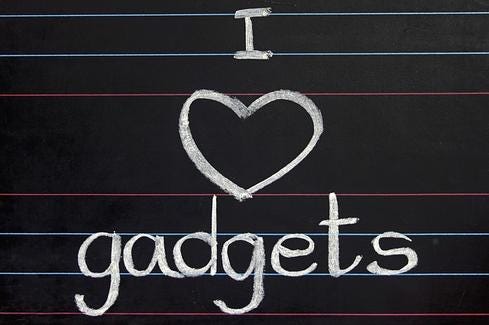Smartphones: Making Us More Social Or Less?
People use smartphones more often, and in a greater variety of ways, to contribute to -- and avoid -- group gatherings, according to new Pew research.


9 Ways Technology Is Slowly Killing Us All
9 Ways Technology Is Slowly Killing Us All (Click image for larger view and slideshow.)
Do you answer text messages when at the dinner table? What about checking Instagram when waiting in line for coffee? Surely you've searched Google for information relevant to a group conversation. Smartphone use continues to saturate our daily lives, yet not everyone agrees about when the devices should and shouldn't be used during social gatherings.
About 92% of US adults own a cellphone, according to the Pew Research Center's American Trends Panel, and 90% of those phone-owning adults bring their phone with them wherever they go. About 31% of people say they never turn their phone off completely, and 45% seldom turn their phone off.
You could say our society is as connected as ever, but smartphones add an element of disconnect, says Pew.
Most adults agree on which phone-based behaviors are acceptable and which are unacceptable. For example, 77% of Pew respondents believe it is generally OK to use a phone when walking down the street; 75% say it's OK when on public transportation; and 74% agree it's OK when waiting in a line.
"Americans of all ages generally trend in the same direction about when it is OK or not to use cells in public settings," according to the Aug. 26 report from Pew. "Fully 'public' venues are viewed by all age groups as generally acceptable places to use one's cellphone, while usage in quiet or more intimate settings is mostly frowned upon by all."
When is using a cellphone not cool? At restaurants (say 62% of adults), at family dinner (88%), during a meeting (94%), at the movies or performances (95%), and at church services (96%).
Pew asked survey respondents, of which there were 3,217, to think specifically about how they've used their phone in recent social gatherings. Most, or 89%, said they pulled their phone out during their last group event, and 86% said someone in their group also used their phone.
How are people using their phones when with friends, family, and colleagues? They read messages (61%), take photos/video (58%), send messages (52%), answer calls (52%), check alerts (34%), make a call (33%), use an app (29%), or browse the Web (25%).
At least some people are turning to their phones to avoid those around them.
Some 16% of respondents said they pulled out their phone because they were no longer interested in the group's activities or conversation. Some 15% said they wanted to interact with others outside the group, and 10% used their phone to avoid participating in whatever the group was doing.
So, yes, smartphones do help people act in an antisocial manner; however, Pew says people often use their smartphones to improve or enhance the group interaction.
[Read more about the history of the smartphone.]
For example, 45% said they used their phone to post a picture or video of the group activity and 41% used their phone to share a group activity with others via text or social networks. Moreover, 38% of people used their phone to search for information relevant to the group's activity or conversation, and 31% used their device to reach out to absent members of the group.
As expected, younger users have more tolerance for behaviors that older users might consider rude or antisocial.
"Along with being more tolerant than their elders about cellphone use in public, younger adults also tend to use their phones for a wider range of purposes while out and about in public," according to Pew. "Young adults who have cellphones are also more likely than seniors to have used their cellphone during their most recent social gathering."
What do you think? When is it rude to use your smartphone in social settings? Please sound off in the comments section.
About the Author
You May Also Like






